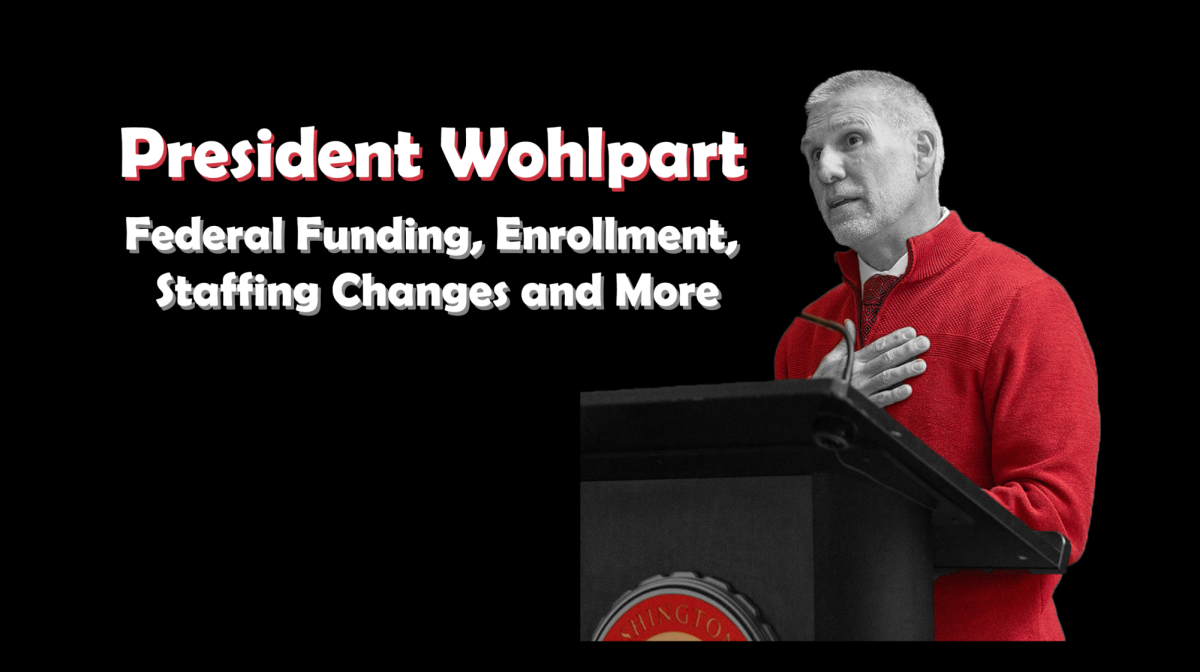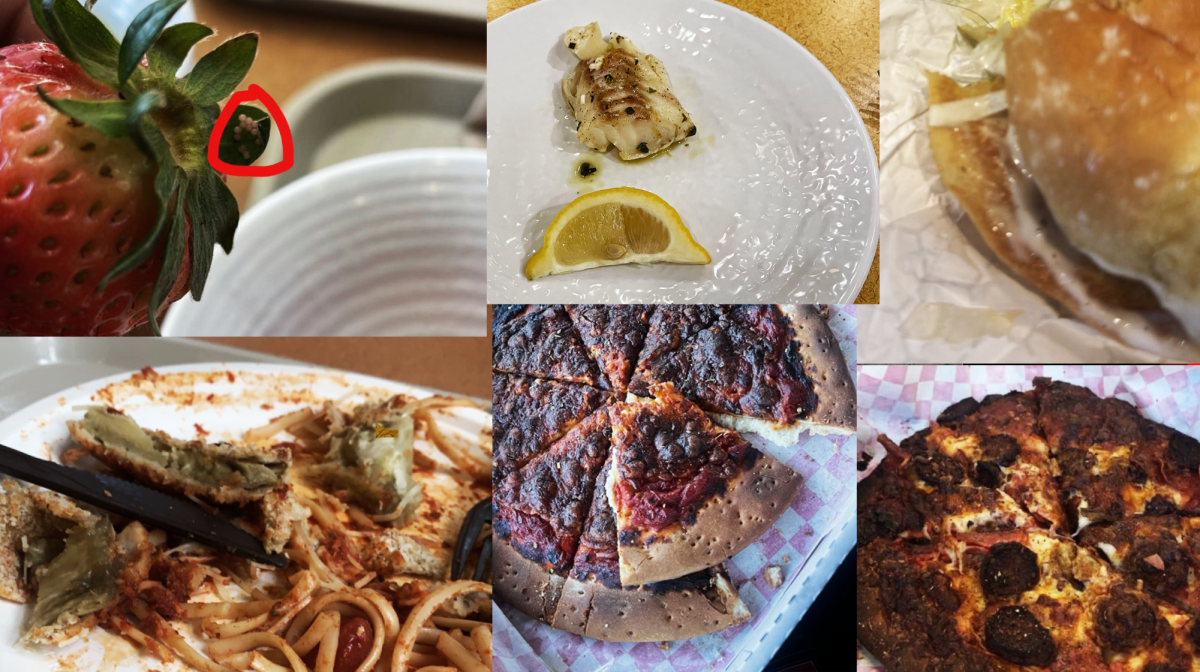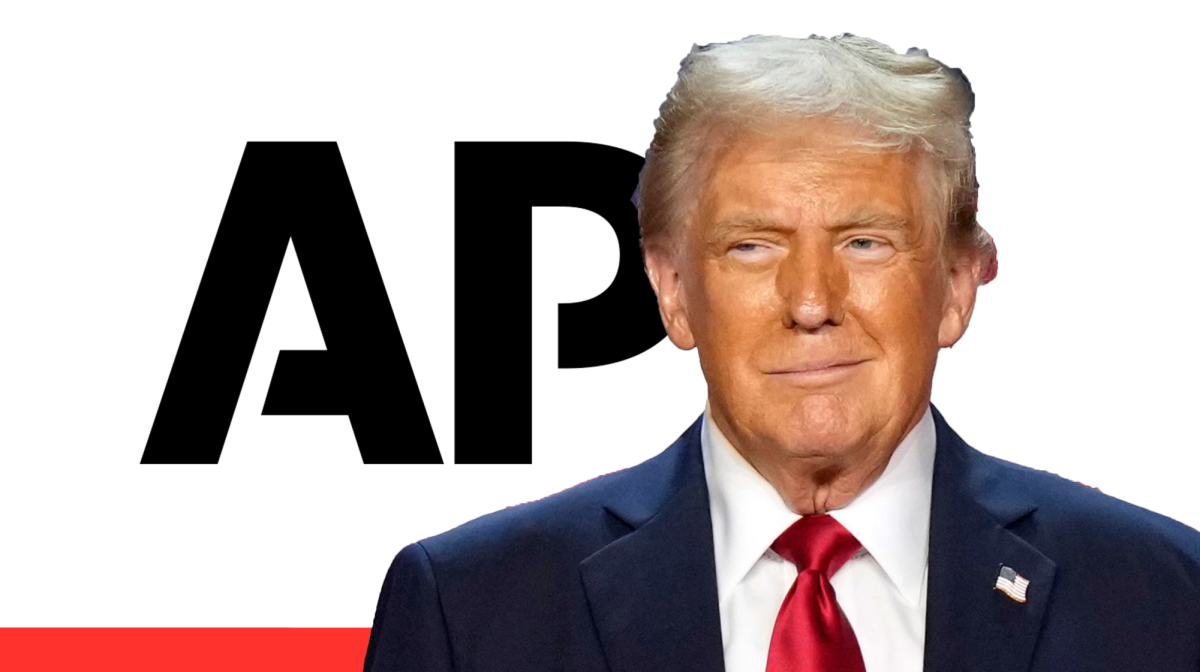On the morning of Feb. 12, CWU’s President Jim Wohlpart sent out an email to students announcing that the search for a new provost had concluded, as he and his 11-member search committee had appointed Dr. Patrick Pease as the new provost and executive vice president for Academic Affairs. He will begin his tenure on Tuesday, April 16, just as the spring quarter is underway. He replaces Kurt Kirstein who has acted as interim provost since October 2023 after previous Provost Michelle DenBeste stepped down.
As Provost, Pease will be responsible for overseeing the vision of the university and its values. He will also lead the university in its plan regarding academic curriculum, departments and programs.
“When President Wohlpart called me, I was of course thrilled,” Pease said. “After my visit, I knew Central was the place I wanted to be … It will be a busy few weeks for me to transition to Washington, but I am eager to get to Ellensburg and continue getting to know everyone.”
Pease most recently has acted as the Associate Provost for Academic Affairs at the University of Northern Iowa (UNI), where he served since 2017. Notably, Pease and Wohlpart previously worked together at UNI, as Wohlpart served as the school’s provost for six years.
First things first for Pease is to become acclimated with the CWU community, which he already feels greatly embraced by. Wohlpart mentioned that part of Pease’s success at UNI was his connection to the school’s student body, and he hopes that that can be replicated at CWU.
“I’ve been at my current university for a long time and I have strong relationships across campus, which are invaluable,” Pease said. “I’m very aware that I need to start building those same kinds of relationships at CWU, and it starts with getting out and listening to people. There are so many individuals and groups I’m looking forward to hearing from, and I plan to start making those connections right away.”
Wohlpart says that Pease made his plans to build foundational connections with the student body and the community at large clear from the get-go, mentioning it in one of his interviews with him.
One of CWU’s highest touted missions is diversity. Outside of Black Hall is a banner claiming CWU as the number one school for diversity in Washington State. Pease is notably a white man.

“[Diversity] is such an essential piece of what we must be working on at Central and especially at the executive team,” Wohlpart said. “I made certain that that was front and center in the deliberations of the committee and of ELT [Executive Leadership Team]. Everybody was aware of that as they were formulating their recommendation analysis. What folks realized was we have to hire a provost who is ready to hit the ground running and do the job at the level that it needs to be done, and the consensus was that that was Patrick.”
Wohlpart said that looking past this hire, he is still committed to creating pipelines where diverse faculty, staff and students have opportunities in leadership roles and have the ability for upward mobility in said roles. “That’s something we need to do in very proactive and intentional ways,” he said.
The search for a new provost was conducted in large part by the 11-person search committee. The search began with the refining and revising of the position description.
“That [new] position description was shared with faculty leaders, staff leaders, student leaders, the executive leadership team so that everyone could have input into what we were looking for.” Wohlpart said. “That leads to a set of required qualifications and then preferred qualifications.”
Among those required qualifications is a doctorate or terminal degree from a recognized regionally accredited institution, a history of teaching, scholarship and service qualifying the candidate for a tenured appointment at the rank of full professor in one of CWU’s academic departments, ten years of leadership and administrative experience in higher education, and more.
Preferred qualifications include five years of executive leadership and administrative experience at the Dean of Associate Vice President level or higher, a record of leading collaborative and inclusive initiatives to meet workforce needs, demonstrated success in building a culture of data-informed decision-making, and demonstrated experience working across university divisions on projects that enhance student engagement and success.
Pease has a bachelor’s and a master’s degree in geology from Indiana State University, and he earned his doctorate of philosophy in geology from Texas A&M University.
Wohlpart emphasized the importance of having someone in the chair who would not just echo his own sentiments and initiatives. “I thought if I’m going to be successful as a leader, as a provost I needed people who are going to offer me different perspectives, and have the courage to offer those different perspectives,” he said.
Pease also referenced their sometimes opposing views as an asset rather than a detriment. According to Pease, he mentioned his differing personal and academic background during the interview process, which differs from Wohlpart. Wohlpart being the son of a professor and Pease being a first-generation graduate is one of their many differences. Wohlpart also grew up in larger populated areas, even spending time as a youth in Switzerland, while Pease grew up on a farm.
“A great thing about President Wohlpart is his genuine curiosity and openness to alternative viewpoints,” Pease said. “There were certainly points in our past working relationship where we disagreed and that process allowed us to challenge each other to do our best and to do what is best for the students.”
Wohlpart let the search committee take the wheel in the quest to find a new provost. He listened to and trusted their judgment when it came to hiring Pease.
“If the entire search committee … had all said we should hire Patrick, would I have gone and hired somebody else? No,” Wohlpart said. “If folks had said that there’s two viable [candidates] then I would have asked more hard questions. What are the real strengths of this one? What do we need … There was a clear consensus.”
Keeping a distance from the hiring process also allowed there to not be any bias in the hiring, since Wohlpart and Pease are previous colleagues from UNI. Both Pease and Wohlpart say they had a great relationship.
“Being able to work with President Wohlpart again is an extra benefit to coming to CWU,” Pease said. “We had a great relationship at UNI in which I felt supported, respected, and free to operate in ways that worked for my leadership style.”
“If everybody has recommended somebody else and I picked Patrick then I would say I had a pretty heavy thumb on it,” Wohlpart said. “But I did not weigh in on that. In fact, when we went around the room at ELT I asked everybody to make a final weigh-in. I did not say how I felt about any of that. So I stayed completely out of it knowing that yes, I did work with him.”
Even though they already had a successful working relationship, Wohlpart doesn’t necessarily want it entirely replicated at CWU. He wants Pease to be able to take a more hands-on approach with the school, letting him handle off-campus activities, like fundraising.
“We raise about $8 million a year in the foundation,” Wohlpart said. “UNI was raising over $40 million. Most of that for scholarships for students, programs for faculty … That’s where we get to provide all of that support for the academic programs and things like that. I haven’t had time to do that here as much. I hope to get to that place.”
Pease says that the interview process was well organized and designed, and despite it being busy and fast-paced, everybody involved remained kind, welcoming and engaged.
“I spent a lot of time before the interview learning about Central,” Pease said. “Once I was on campus everything exceeded my expectations. It was really fun to see everything in person and learn first-hand from the faculty, staff, and students I met.”








